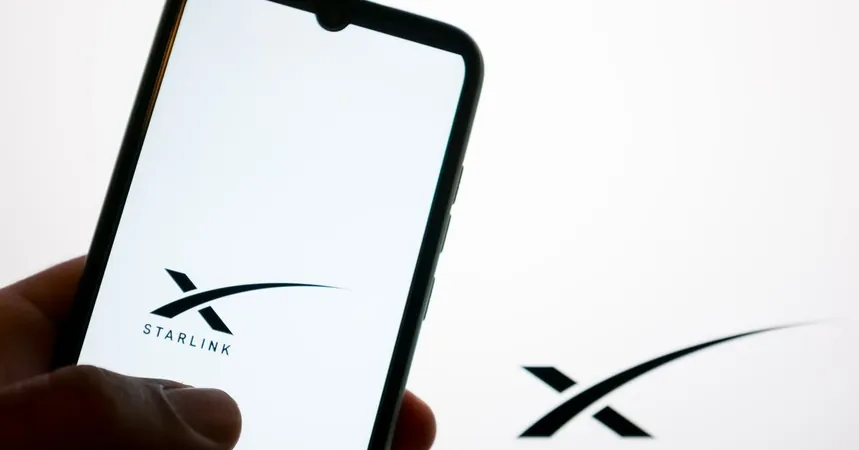
Groundbreaking: Starlink's Direct-to-Cell Service Gets FCC Green Light!
2024-11-27
Author: Yan
Groundbreaking: Starlink's Direct-to-Cell Service Gets FCC Green Light!
In a historic move, the Federal Communications Commission (FCC) has given the thumbs up to SpaceX's Starlink satellite network, allowing it to provide T-Mobile customers with direct-to-phone service. This landmark approval marks the first collaboration between a satellite operator and a wireless carrier to offer satellite-enhanced cellular coverage, paving the way for a new era of connectivity.
The FCC’s ruling highlights the significant public benefits of satellite-to-device communication, including reliable access to emergency services like 911 even in the most remote areas, advancements in technology, and innovative management of radio frequency spectrum. With the growing demand for uninterrupted connectivity, this approval comes as both a timely and crucial step towards revolutionizing mobile networks.
This announcement follows a temporary approval granted to SpaceX and T-Mobile last October, enabling emergency satellite service in the aftermath of Hurricane Helene. Their partnership, initiated in 2022, aims to eliminate cell service dead zones across the United States. Meanwhile, competitors such as Verizon and AT&T have teamed up with AST SpaceMobile in similar efforts to enhance rural coverage.
However, the FCC's approval comes with a caveat. The agency is yet to determine whether SpaceX will be allowed to boost the radio emission power of its satellites, a move essential for facilitating real-time voice and video calls. Both AT&T and Verizon have expressed concern that increased power levels could disrupt their existing networks.
Jessica Rosenworcel, the FCC Chair, underscored the agency’s commitment to fostering competition in the space economy. “The FCC is actively promoting partnerships between terrestrial mobile carriers and satellite operators to usher in a future devoid of mobile dead zones,” she stated, as reported by Reuters.
Additionally, the FCC is still deliberating whether SpaceX can launch an additional 22,488 Starlink satellites, augmenting its previously approved constellation of 7,518 from 2018. While the first satellites capable of direct-to-cell support launched in January, the full constellation is still in the works. As it stands, SpaceX has hinted at preparing for basic SMS capabilities in the near future, with comprehensive support for voice and data anticipated to roll out by 2025.
This ambitious initiative could be the key to transforming the telecommunications landscape, making connectivity more accessible than ever. Keep an eye out for updates, as this technological evolution unfolds!


 Brasil (PT)
Brasil (PT)
 Canada (EN)
Canada (EN)
 Chile (ES)
Chile (ES)
 España (ES)
España (ES)
 France (FR)
France (FR)
 Hong Kong (EN)
Hong Kong (EN)
 Italia (IT)
Italia (IT)
 日本 (JA)
日本 (JA)
 Magyarország (HU)
Magyarország (HU)
 Norge (NO)
Norge (NO)
 Polska (PL)
Polska (PL)
 Schweiz (DE)
Schweiz (DE)
 Singapore (EN)
Singapore (EN)
 Sverige (SV)
Sverige (SV)
 Suomi (FI)
Suomi (FI)
 Türkiye (TR)
Türkiye (TR)